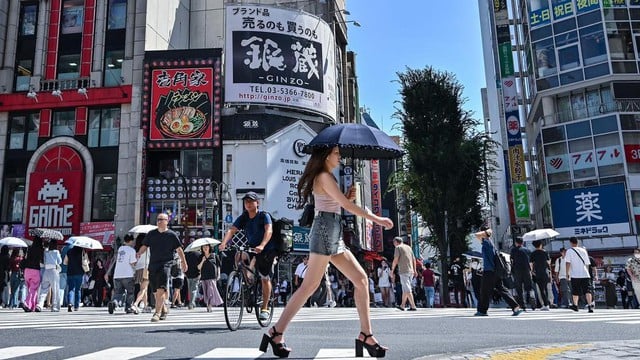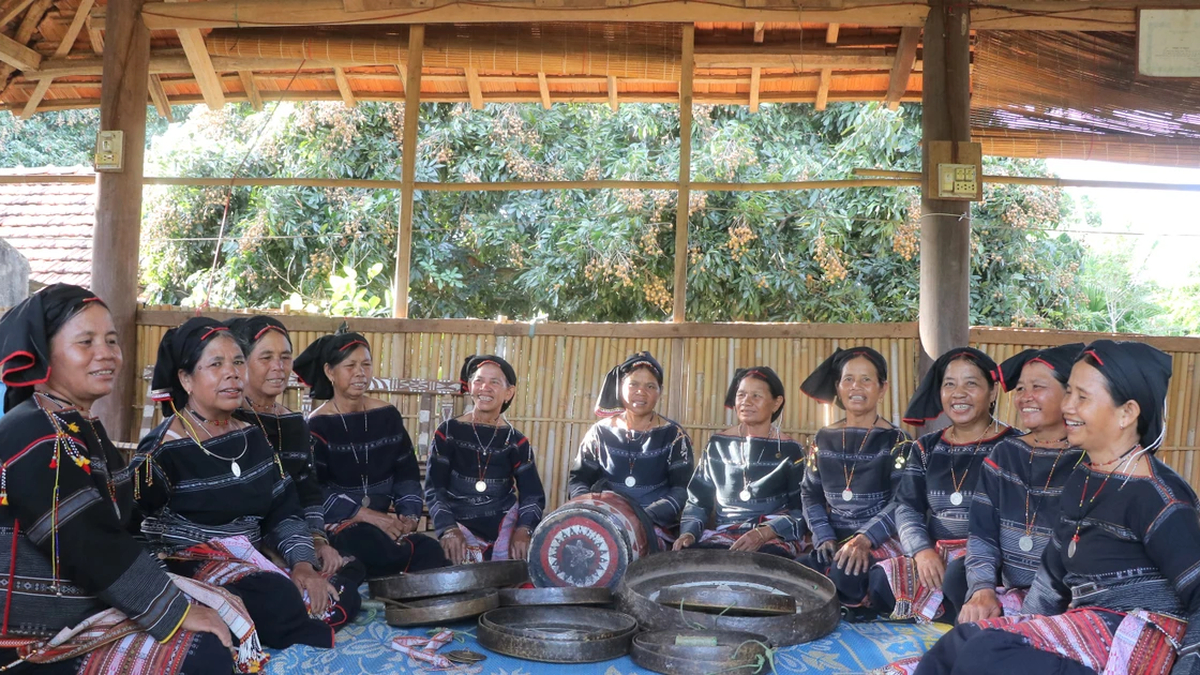Japan, a popular destination for Vietnamese tourists, has experienced its hottest July since records began in 1898, and is warning of further “heat waves” in the coming month. Heat waves are becoming more intense and frequent around the world due to human-caused climate change, and Japan is no exception.
The average temperature in July was a record 2.89 degrees Celsius above the 1991-2020 average. This is the third consecutive year that the average temperature in July has broken the record.

Tourists hold umbrellas as they cross the street in the Kabukicho entertainment district in Shinjuku, central Tokyo.
PHOTO: AFP
On July 30, Japan recorded its highest temperature of 41.2 degrees Celsius in the western region of Hyogo. The country is expected to continue experiencing severe heat next month.
Earlier on July 24, temperatures rose to nearly 40 degrees Celsius in some areas of Hokkaido province, northern Japan.
The average temperature in July was 6.3 degrees Celsius above normal in the town of Oumu, Hokkaido, 4.8 degrees Celsius above normal in the city of Aomori, northern Japan, and 2.7 degrees Celsius above normal in central Tokyo.
Rainfall in July was low across large areas of Japan, with the north bordering the Sea of Japan recording record low rainfall.
The rainy season ended about three weeks earlier than usual in parts of western Japan, another record. Mount Fuji's famous winter snow cover was absent for the longest period on record last year, only appearing in early November, compared to the average of early October, according to news.com.au.
According to the Japan Tourism Promotion Agency in Vietnam, in 2024, the number of Vietnamese visitors to Japan reached a record 620,000; in the first 5 months of 2025, it reached 312,000, an increase of nearly 10% over the same period.

PHOTO: REUTERS
Meanwhile, the country has experienced a record 22 consecutive days of “tropical nights” this month, the Korea Meteorological Administration said on Thursday. Nighttime temperatures in Seoul have stayed above 25 degrees Celsius for 22 consecutive days in July – the longest stretch since modern weather records began in 1907.
The South Korean capital is also expected to record its hottest July night on record on Wednesday, with a daily low of 29.3 degrees Celsius. Media reports suggest the record could be broken again on Thursday. The intense heat in Seoul is expected to continue, according to the meteorological agency.
Source: https://thanhnien.vn/khach-viet-chu-y-nhat-ban-han-quoc-nong-nhat-lich-su-185250802214611586.htm



































































































Comment (0)